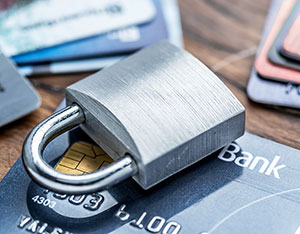 Navigating the ever-evolving landscape of cybercrime can feel like trying to catch a shadow. Just when you think you’ve caught up, a new scam emerges. With the advent of advanced technologies such as AI, scammers have become adept at impersonating trusted institutions like banks, healthcare providers, and even us. This year is no exception, with a wave of new or evolving scams targeting cell phones and bank accounts nationwide. Here are six common scams to be aware of.
Navigating the ever-evolving landscape of cybercrime can feel like trying to catch a shadow. Just when you think you’ve caught up, a new scam emerges. With the advent of advanced technologies such as AI, scammers have become adept at impersonating trusted institutions like banks, healthcare providers, and even us. This year is no exception, with a wave of new or evolving scams targeting cell phones and bank accounts nationwide. Here are six common scams to be aware of.
1. Fraudulent Cell Provider Emails
Cybercriminals are increasingly exploiting cell service outages to target unsuspecting customers. Recently, AT&T customers across the US have been receiving fraudulent emails following service interruptions, offering fake refunds or credits.
How to Avoid It:
- Never click on links or follow payment instructions in unsolicited emails.
- Verify any communication by ensuring it comes from an official domain such as @att.com.
- Contact your provider directly through their official website or customer service number to confirm the legitimacy of any offers.
2. Sophisticated Grandparent Scams
Grandparent scams have been around for years, but they’ve become more sophisticated. The FCC warns of scammers using AI to create voice clones of loved ones, typically grandchildren, coupled with spoofed caller IDs. The scammer claims the loved one is in an emergency, such as being in jail or injured, and provides a phony case number, instructing the grandparent to call an attorney, leading them into a web of deceit designed to extract money.
How to Avoid It:
- If you receive an urgent call, contact your loved one directly to confirm their safety.
- If they don’t answer, reach out to other family members to verify the situation.
- Be wary if the caller urges you to keep the matter a secret – this is a common tactic of scammers.
3. Check Fraud Evolution (aka Check “Cooking”)
According to the Associated Press, banks reported nearly 700,000 cases of check fraud in 2022. While criminals have previously only stolen physical checks from mailboxes, they now often take photographs of checks. These images are then used to create counterfeit checks with easily accessible digital tools, which can be deposited via mobile banking apps or sold online.
How to Avoid It:
- When possible, use credit cards for transactions.
- If you must use a paper check, avoid leaving it in your mailbox; take it directly to the post office.
4. Home Improvement Scams
A 2023 study by JW Surety Bonds found that one in ten Americans had fallen victim to a contractor scam, with an average loss of $2,500. These scams typically involve contractors demanding upfront payments or deposits, only to either vanish, perform substandard work, or leave projects incomplete.
How to Avoid It:
- Ensure the contractor is licensed and insured.
- Get all agreements in writing and review the contract thoroughly.
- Avoid paying the full fee upfront; consider a staggered payment plan tied to project milestones.
5. QR Code Scams
With the growing popularity of QR codes for payments, menus, and information access, scammers have started placing fake QR codes in public places or sending them via email. These malicious codes redirect users to phishing websites designed to steal personal and financial information.
How to Avoid It:
- Only scan QR codes from trusted sources.
- Verify the URL that the QR code directs you to before entering any personal information.
- Use a QR scanner app that provides a preview of the URL before opening it.
6. Subscription Renewal Scams
Scammers are increasingly targeting users with fake subscription renewal notices for popular services like Netflix, Amazon Prime, and antivirus software. These emails often claim that your subscription is about to expire and prompt you to click on a link to renew, leading to a phishing site that captures your payment information.
How to Avoid It:
- Always check your actual subscription status by logging into the service’s official website or app.
- Be cautious of unsolicited emails asking for payment information or urging immediate action.
- Look for telltale signs of phishing, such as generic greetings, spelling errors, and suspicious email addresses.
In this digital age, staying informed about the latest scams and understanding how to protect yourself is crucial. At Alexaur Technology Services, we are committed to helping you stay safe online. Remember, a healthy dose of skepticism and verification can go a long way in keeping you safe from these increasingly sophisticated scams. Be sure to visit us here on the blog each week to stay up to speed on the latest threats and click here to sign up to receive our free Cyber Security Tip of the Week.



